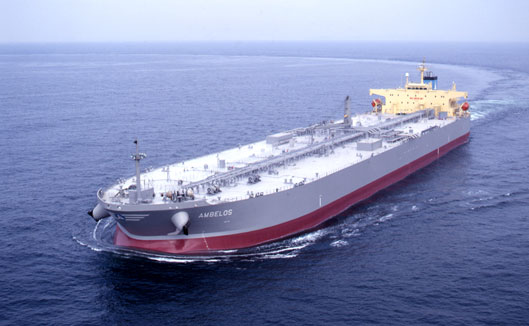
Tankers demand to take a hit as India grapples with massive COVID-19 wave
SINGAPORE : The ongoing massive wave of the Coronavirus in India is likely to reduce demand for ships amid a slowdown in the South Asian nation’s crude imports, and potentially refined products exports, creating an artificial surplus of such oil tankers, market participants said April 30.
A series of province-specific lockdowns across India, the world’s third largest crude importer, are already being implemented, reducing demand for gasoline and diesel, which will prompt refineries to produce less of these products in the next two months and thereby process lesser crude, they said. There are also concerns over some ports refusing to allow crew changes in those ships which have called on Indian ports over the previous 14 days.
With petroleum product demand expected to slow, market sources said some laden tankers that have already called at a few Indian ports are waiting for over 10 days to discharge their cargoes due to lack of space at shore-based tanks.
According to India-based shipping agents and cFlow, Platts trade-flow software, the Front Defender, a VLCC, has been waiting at the east coast Indian port of Paradip since April 17 to discharge its cargo.
“The feedback received from refining companies, which charter tankers, is that they will need lesser crude in the short term,” a VLCC broker involved in such deals said.
Loading programs for crude during the rest of this quarter will be relatively slower, the broker said. This is significant because a substantial decline in crude processing has already taken place since the pandemic first hit the country last year.
India’s state-run refining companies received around 27 VLCCs of crude in the first quarter of 2021, down 27% from a year earlier, according to shipping industry estimates. In the private sector, Reliance, used to charter an average of around 20 VLCCs a month to import crude before the coronavirus hit consumption, but estimates show that demand is down 30%. Reliance executives could not be reached for comment.
According to shipping brokers, India’s demand for crude tankers is likely hit by another 10% in the short term due to the latest crisis.
“Tanker business will take a hit from what is happening in India right now,” Copenhagen-based Peter Sand, BIMCO’s chief shipping analyst, said. It will mostly be felt by long-haul imports from the Americas and to a lesser extent from the Persian Gulf, Sand said.
The pandemic jolt has come at a time when global VLCC freight is showing modest signs of improvement. Persian Gulf-West Coast India VLCC rates are around 45 Worldscale points, up from w36.75, three weeks ago, Platts data showed. Earnings at $3,000/day have also turned positive during this period, brokers said.
With infections showing no signs of abating, several Indian provinces plan to extend the lockdowns implemented earlier this month, sources said.
Demand for jet fuel is already poor for more than a year, while gasoline and diesel consumption had picked up late last year, but is declining again, a chartering source said. There is lesser road travel as millions of people have self-imposed their own individual lockdowns, the source said.
According to government data, during the year through March 31, 2021, nationwide refining run rates were estimated at 89% compared with 102% the previous year, reflecting the overall impact of the deadly pandemic.
In recent years, India has been diversifying crude imports by buying more from the Americas. Should the purchase of those barrels be reduced, the impact on the tanker industry will be bigger, cautioned Sand. Long haul voyages keep ships occupied for a longer duration, in what is known as ton mile demand.
According to preliminary government estimates, India imported 15.24 million mt, or an average 4 million b/d of crude in February, down by around 18% year on year. Data for March has yet to be released and market participants told S&P Global Platts that shipments in April-June are likely to be lower, over and above, last year’s substantial decline.
REFINED PRODUCT EXPORTS
India’s refined products exports such as gasoil and jet fuel, which was hit by weak European demand last year, has so far not seen a deterioration, but as lesser crude is processed, the impact of the slowdown could be felt in June, sources said.
“Currently it is business as usual,” a source with a clean tankers’ owner said. Around a dozen cargoes of naphtha and diesel are estimated to have loaded, or scheduled to do so, in Sikka during the 10 days through May 4, according to port data. Sikka, on India’s West Coast is one of the country’s largest load port by volume for refined oil products.
While government run refineries cater mostly to domestic needs, private refineries along the West Coast are export-oriented and their demand is not affected, another clean tankers source said.
As Europe recovers from recent COVID-19 waves, more demand is in the offing in the coming months and eventual refining margins will determine the export volumes to be produced by India, he said.
Recent decline in clean tankers’ freight has reduced transportation costs for such products. An LR1, typically loading up to 65,000 mt cargo currently costs $1.45 million on the West Coast India-UKC route, down by almost 28% from the beginning of April, Platts data showed. For LR2s, which load up to 90,000 mt, the decline to $1.425 million is even steeper at around 38%, the data showed.
Source : S&P Global Platts

